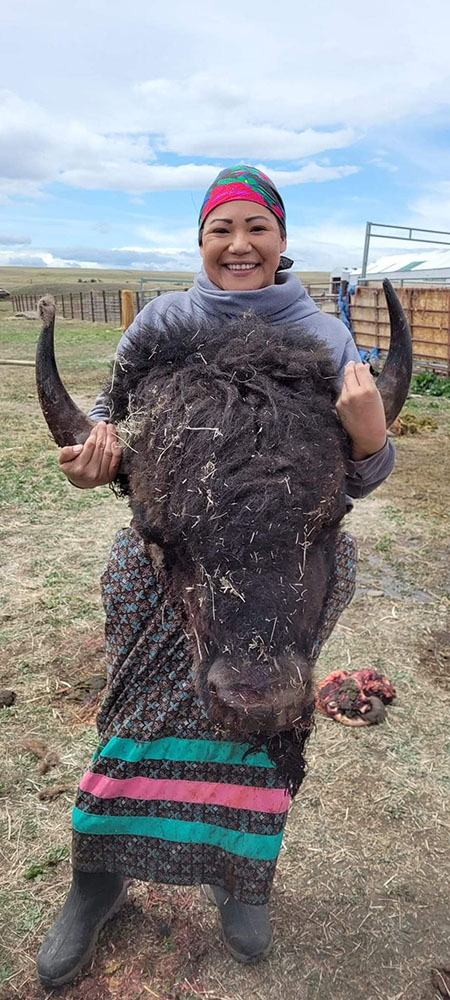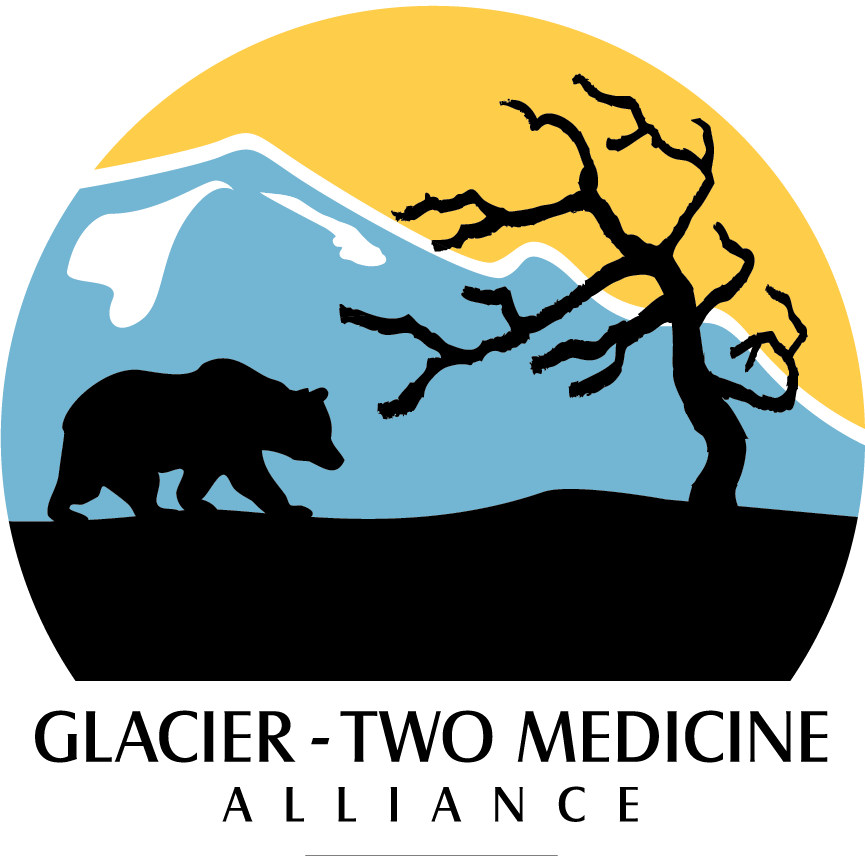Our annual Two Medicine Voices Speaker Series is back!
This year’s presenters will discuss various effects of climate change on the ecology and human communities in the Crown of the Continent ecosystem, with a focus on the Blackfeet Nation. Termaine Edmo, climate change coordinator for the Blackfeet Nation, will kick off the monthly series with a presentation on the Blackfeet Nation’s climate change response plan. Her presentation is Monday, April 24th at 7 p.m. at the East Glacier Park Women’s Club. All talks in the series are free and open to the public.
Glacier-Two Medicine Alliance’s Jordyn Steele sat down with Termaine to learn more about her background and her work on climate change for the Blackfeet Nation. The conversation has been lightly edited for clarity and length.
 1. Tell us a bit about yourself: where you were raised, where you went to school?
1. Tell us a bit about yourself: where you were raised, where you went to school?
My name is Termaine Edmo or Awa-naa-kii (Rattle Woman) I am a Blackfeet and Shoshone-Bannock decendent born in Missoula, MT and raised in Browning by my grandmothers. I was a student in the first graduating class to come from our private immersion Cuts Wood school, I also received her A.A. in social work from Blackfeet Community College. Continuing her education at the University of Montana, I landed an internship with USDA that led me to the Blackfeet Environmental Offices Blackfeet Climate Adaptation Planning committee and has seen the plan flourish from an idea to boots on the ground.
(GTMA: Termaine also had the honor of growing up immersed in a cultural background where she serves as a cultural youth mentor to youth in Blackfeet language, ceremonies and traditional ecological knowledge. Termaine’s educational goals are to finish earning her bachelors of social work at the University of Montana and continue on to the Masters program at the School of Social Work focusing on social justice environmental impacts.)
2. What influenced you to choose a career related to the environment
What influenced me was being brought up in a traditional lifestyle. Through this upbringing, I understand the relationship of all living things. I saw the bond between all living things. I saw the animals in the bundle and what they need to survive. I chose to study environmental education instead of counseling because I related the plant and this work of healing. I saw this as outdoor therapy. I began going into the community to provide life skills, provide culture camps, and going into the schools to share the knowledge of how to sustain ourselves in the future.
3. This year's speaker series explores how climate change is affecting the environment and people here in the Crown of the Continent ecosystem and various efforts to enhance resilience. What are some of the most notable effects of climate change that the Blackfeet Nation is experiencing?
Right now, thermal fish- kill levels and water warming are decimating aquatic habitat. It’s becoming harder to find bugs. We are working towards those solutions by bringing in heat-stress reduction, bringing in beaver mimicry and tree planting, and bank stabilization. We are looking at every problem with a solution-oriented perspective.
4. The Tribe has developed a climate change response plan that you're in charge of implementing. What are two or three of its most notable features?
Regenerative grazing and buffalo reintroduction, beaver mimicry, and our newest project of controlled burns are our three most notable features.
5. From your perspective, why is the Blackfeet Nation's effort to address climate change important?
It’s important because we’re fighting climate change for the good of the future, for my children and my children’s children. We are planning for the next seven generations and my child’s next generation. We are learning how to sustain for ourselves and plan for our future. Teaching the knowledge is the only way to build our future.
